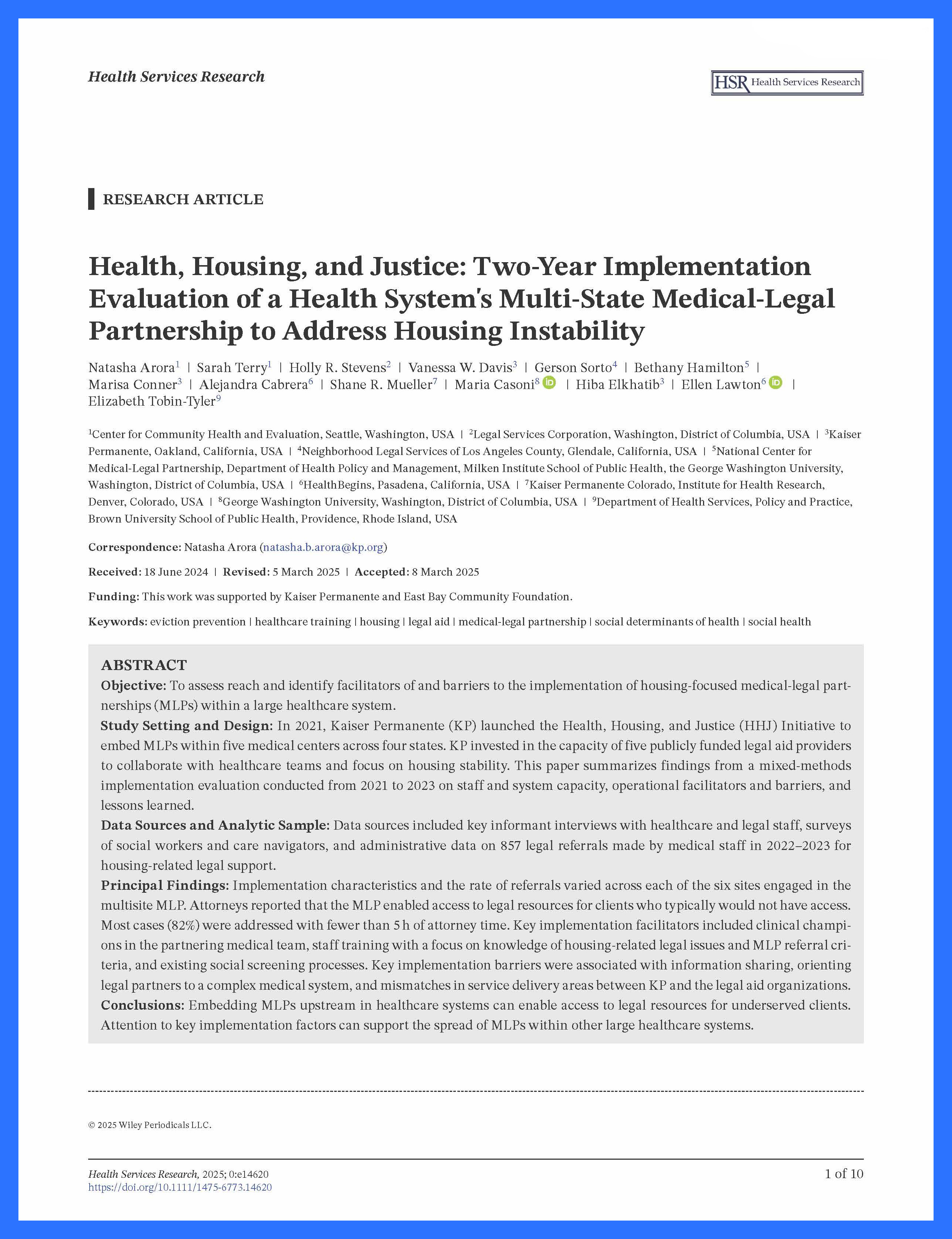Evaluation Highlights Medical-Legal Partnerships to improve Housing Stability

MLP: Partnerships that meet patient needs
Kaiser Permanente launched the Health, Housing, and Justice Initiative in 2021, with a goal of embedding MLPs in six regions across four states. KP partnered with five legal aid organizations and the National Center for Medical-Legal Partnerships. Over the following two years, CCHE evaluated the implementation of the initiative to understand how the MLP unfolded in real time, to what extent it reached patients, and what factors supported its success. Key findings included:
- MLP facilitated access to legal resources for clients who typically would lack such access.
- 82% of opened cases were resolved with fewer than 5 hours of attorney time per case.
- 32% of closed cases directly improved housing stability by preventing evictions, securing alternative housing, or enhancing living conditions
- Implementation facilitators included clinical champions in the partnering medical team, staff training with a focus on knowledge of housing-related legal issues and MLP referral criteria, and existing social screening processes. There were barriers around information sharing, orienting legal partners to a complex medical system, and mismatches in service delivery areas between KP and the legal aid organizations.
Scaling Solutions
These evaluation findings align with broader evidence indicating that legal interventions can improve housing stability and improve patients’ health. The success of MLPs underscores the need for policy and funding support to expand these partnerships nationwide. By embedding legal services within healthcare settings, healthcare systems can help patients who might not otherwise access these services to assert their rights.
Read about Kaiser Permanente's MLP in Health Services Research:
